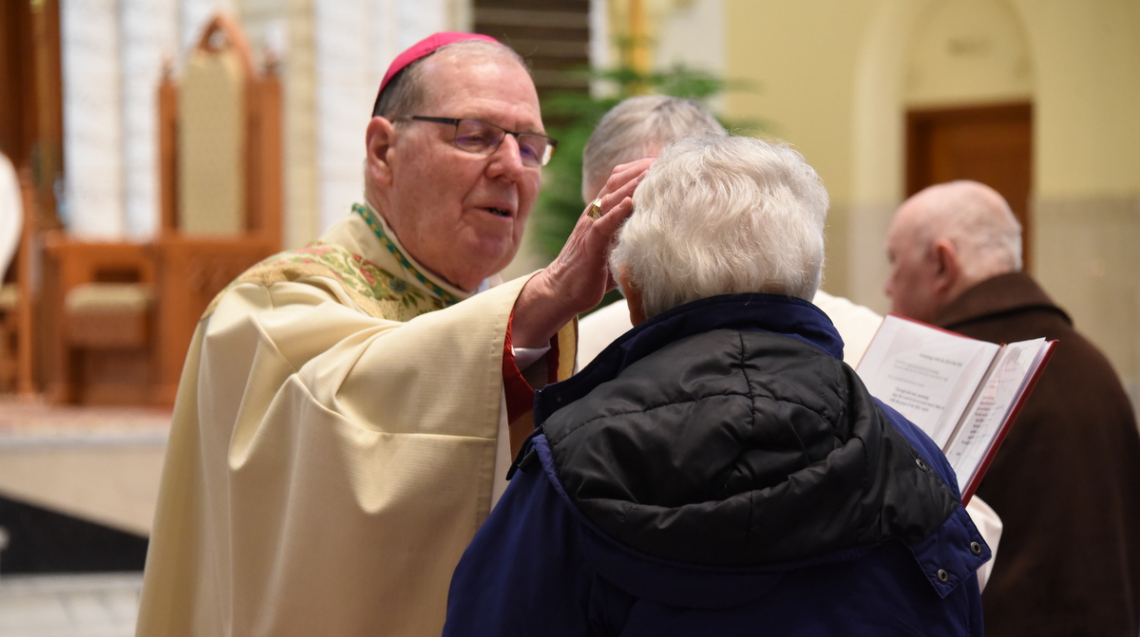The Sacraments - Anointing of the Sick

One of the most challenging realities in our lives is that of suffering – our own and the suffering of others. For us as human beings, suffering is inescapable. Our lives are limited. We are vulnerable to every sort of illness and injury. For a culture like our own that extols youth and health, suffering is a problem to be ignored or eliminated where possible. Ask those who suffer from old age or disabilities how welcome they feel in our society.
As Catholics, we are affected by suffering as we share the same humanity as everyone else. Our faith is affected and tested by the attitudes of those who do not see a point in suffering and who ignore or reject those who suffer. We are also affected by the opinion that suffering is always a result of the sufferer’s failure or sin. The greater the suffering, the greater the test. The possibility of death becomes the greatest test of all.
In His mercy and love, Our Lord offers us a sacrament to assist us when we are confronted by serious illness or some other serious suffering. It is the anointing of the sick. In years past, this was also known as “extreme unction,” because it was always commended for those who were in imminent danger of death. This sacrament is especially suited for people who are preparing for death but is not meant for them alone. It is helpful to see how Vatican II spoke of this sacrament:
By the sacred anointing of the sick and the prayer of the priests the whole Church commends those who are ill to the suffering and glorified Lord, that He may raise them up and save them. And indeed, she exhorts them to contribute to the good of the People of God by freely uniting themselves to the Passion and death of Christ (Lumen Gentium 11). Note, first of all, that this sacrament establishes a connection between the Lord, His whole Church, and the sick person who is anointed. It is a bridge-building or priestly ministry in its essence, as it embodies the priesthood of Christ. This is why only priests may be ministers of this sacrament.
Second, the sick person who is anointed is, in a sense, given a new vocation through this sacrament. This person is to be, in the words of St. John Paul II, “an icon of the Paschal Mystery of Christ.” This person, by being freely united to the Passion and death of Christ, is to be a model of faith and love to the whole Church. In caring for the sick person – or the person with a disability – the Church community is molded by the very presence of the sick person into closer harmony with Christ Himself. Since the sick and aged often live in isolation, this sacrament is often given in isolation. The Church encourages parishes, where possible, to celebrate the anointing of the sick at Mass, so that this grace may become more evident to all the faithful.
Third, what about healing? Jesus healed many who were sick and sent His apostles to do the same. However, not all were healed. We have, for example, St. Paul, who sought the Lord’s healing from some “thorn in the flesh” he experienced, only to be told that the Lord’s grace was enough for him, for the Lord’s power becomes perfect through weakness.
One way to look at this is to place the illness or disability. or other infirmity in the context of the person’s full vocation. For some people, the illness may be a challenge or an interruption of that person’s vocation. The Lord may well heal such a person to enable that person to live out his or her vocation as fully as possible. For other people, it may be that their illness or infirmity is an essential part of their vocation, both for themselves and for the Church. The healing that may be granted then may not be a literal physical healing but the grace to live out that vocation (for the sick person) and the grace to be changed by that vocation (for the whole Church).
If we pay close attention to Church teaching on the anointing of the sick, we can see how it is a priceless gift of the Lord not only to the sick person but to the whole Church. The sick person is commended to the Lord and to the care of the Church. The Church, in contemplating the grace of the Lord active in the sick person, is invited to see an icon of its own weakness and reliance on the Lord.
For further reading: Catechism of the Catholic Church nos. 1499-1532
By: Father Mark Nolette, a priest of the Diocese of Portland










